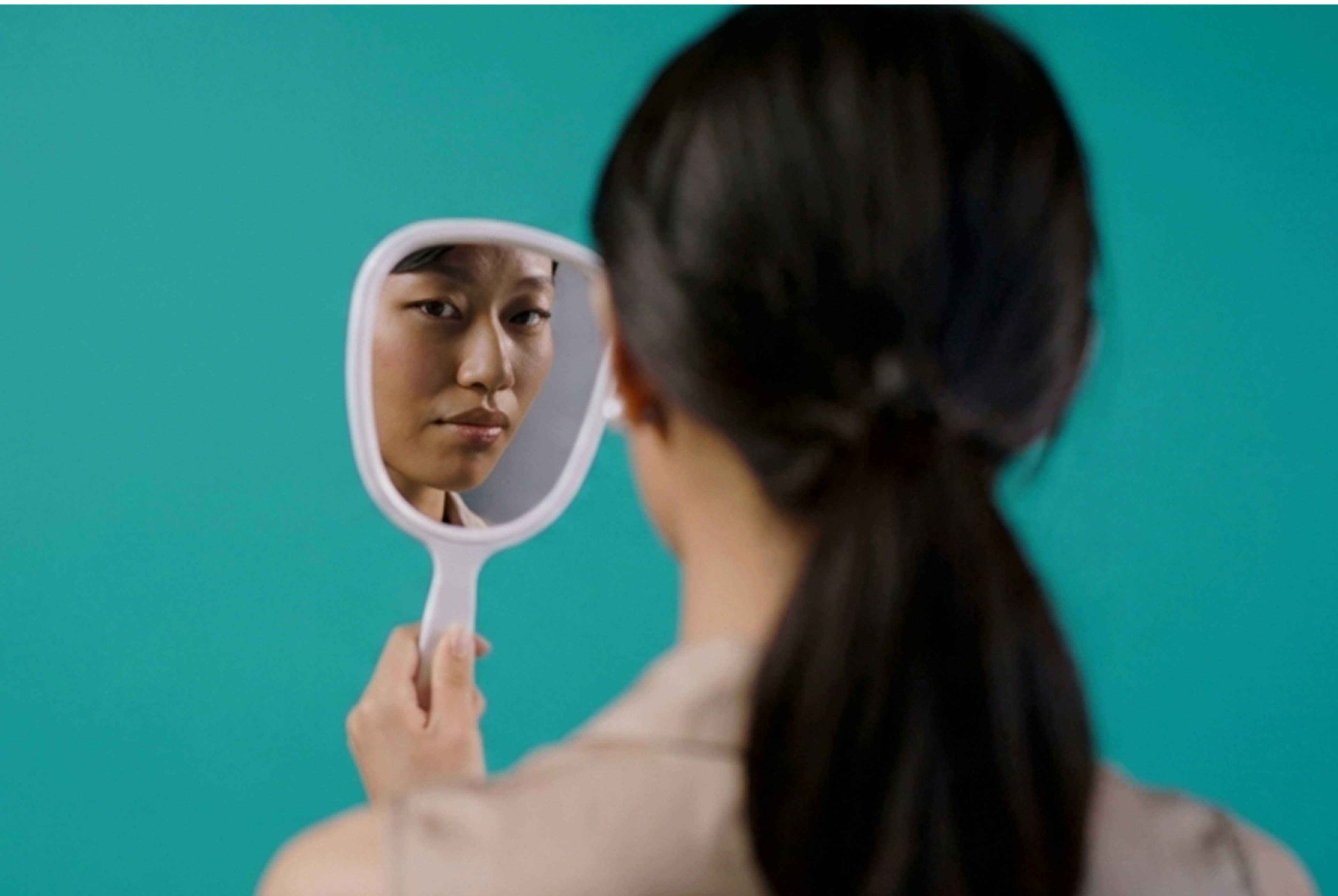

In a perfect world, we’d all be armed with the most helpful, supportive words and actions when trying to support our loved ones. We would instinctively know exactly what to say and do.
Unfortunately, there’s no handbook and conversations about eating disorders and body image are specifically tricky because certain phrases can be triggering to those who are suffering. A well-meaning word of encouragement could be perceived as a veiled insult, and even something as seemingly innocuous as telling someone they “look healthy” could induce anxiety and panic.
“The language we use when discussing health, food, and appearance is so important both in the context of eating disorders and everyday life because it becomes our internalized self-talk,” says Equip Therapist Emily Boyle, MA, LAC, NCC. “The words used by loved ones, teachers, and the media form the foundation of beliefs and internal dialogue of young people, so we need to be extremely mindful of how we speak about these topics.”
Knowing how to talk to someone who is struggling or in recovery from an eating disorder (or even someone who is just existing in a body!) can be tough. Here are some tips for navigating conversations around health, food, and appearance.
First, avoid talking negatively about your own appearance or the appearance of others. It’s become so normalized in our society to say things like “I feel fat in these clothes” or “I’m so bad — I shouldn’t have eaten that,” but that kind of dialogue only reinforces the damaging effects of diet culture myths. Instead, try a body neutral approach.
“Regardless of who we are talking to, language that focuses on outward appearance, specifically weight, can be harmful,” says Equip Family Mentor Inga Yanoski. “Comparing or picking apart bodies, equating weight gain with moral failure or bad health and lack of discipline promotes fatphobia and reinforces the insidious diet culture. ‘I am getting so fat, this makes me feel fat, I need to lose weight, I ate way too much, I am stuffed, you look great, have you lost weight’, etc. The same goes with nutrition. It’s not so black and white.”
Equip Providers Partnerships Manager Melanie D'Andrea says she makes a conscious effort to not to talk about her appearance or size around her children or around peers. “I never realized how often people talk down on themselves (including me) until I really stepped into my own recovery,” she says. “These are things I do for my children, but really they are for my own recovery as well. By sharing my experience with my husband, and connecting it to his relationship with food as well, we are unlearning decades of food and body biases. It is not always easy, but remember this kind of outward and inward talk takes practice and time.”
Avoid talking about anyone’s body when you can — whether you mean it as a compliment or not. “If you want to compliment someone, tell them they look happy, you love their new haircut, or you think that t-shirt color really makes them glow. We've been trained to compliment bodies, particularly women's, and we need to make an effort to stop doing that, as a collective,” D’Andrea says.
Boyle says that even when intentions are pure, telling someone in recovery that they look “much healthier” can trigger the eating disorder and cause distress. “It is far more beneficial to give your child compliments based on non-physical attributes as they make progress in recovery, such as, ‘It’s so good to see you having more energy to engage in the activities that you love,’ or, ‘I love to see your funny sense of humor coming back,’” she says.
Avoid inadvertently reinforcing or celebrating disordered behaviors. Equip Peer Mentor Elizabeth Moscoso says the most unhelpful thing she encountered in her recovery was the sentiment that someone “wished” they had her problem. “My ‘problem’ being a life-threatening eating disorder,” she says. “That comment not only was confusing as someone actively fighting so hard to overcome my eating disorder, but implies that people with eating disorders somehow choose to have one,” she says.This could not be further from the truth.”
As Moscoso makes clear, eating disorders can ruin relationships, negatively affect physical and mental health, and can rob sufferers and their loved ones of joy. “I wish most people knew what actually happens to the body and mind when in the throes of an eating disorder,” she adds. “It's not glamorous. It's painful, isolating, and debilitating at times. The culture we live in places so much value on an ideal body, and the cost of trying to achieve that body can be relationships, jobs, and even life. It's simply not worth the price tag.”
Avoid language that moralizes, labels, or demonizes food. “My own experience was so much calorie counting, "bad" vs. "good" foods, and being "healthy." I vividly remember growing up in the early '90s and eliminating fat was all we heard with marketing. My household was full of "fat-free" products and I was raised thinking butter was "bad" for you. I do not want my children to be preoccupied with any of those thoughts,” D'Andrea says. “Instead, I teach them to focus on listening to our bodies and how we feel as/after we are eating.”
D'Andrea offers some examples of how she talks about food with her kids:
- "How did that Mac and Cheese make your belly feel?"
- "It is good for our bodies to eat a variety of foods - gummy bears are really yummy and so are strawberries and blueberries."
- "We should listen to our bodies when they tell us to eat more or stop eating - you do not have to finish your dinner and there is plenty more if you would like more."
- "We had ice cream at lunch today, but we can have more some other time - would you like apple slices or blackberries with your dinner?"
Avoid prescribing something that makes you feel good to someone else.
Regardless of who you are talking to, discussion of diets and weight loss are seldom helpful to anyone involved. “Diet, health, and weight are nuanced, individual issues that are best discussed with health professionals,” Boyle says. “Talk of weight, diets, and food with friends can all too easily turn into comparison traps and negative talk, so it is best to be avoided.”
Try re-thinking how you use certain words. “There are so many things that would be so wonderful if we collectively stopped saying to make the world a more inclusive and safe space,” Moscoso says. “One of the biggest ones would be to stop using ‘fat’ as an insult or as a negative description, or as a code word for the true emotion that is coming up for us. Fat is a neutral term, it's not good and it's not bad. It's a descriptive word. It does not have an emotion tied to it.”
Try separating the person from their thoughts about their body. “The most supportive and helpful things to say to someone who has struggled with food/weight/body image are, ‘your worth is not defined by a number on a scale’, or the foods that you have eaten, or the size or shape of your body,” Yanoski says.
Some reminders you may want to share with your loved ones (or yourself!) are:
- All bodies are good bodies.
- You are worthy of respect and love.
- Your body is doing amazing things for you all day long.
- All food is good food.
- The culture is the problem, not you. ”
Try just listening.
Moscoso believes one of the most supportive things someone can say to someone struggling with weight, body image or food is "I'm here for you," and validating any emotions that arise. “Recovery is one of the hardest things a person can do and lots of fear can come up around friends or peers no longer liking the recovered person,” Moscoso says. “We can understand that and show up for someone in recovery. You don't have to say much, sometimes your supportive presence is more than enough.”
Try telling them the non-physical ways recovery is bringing them to life. “Encourage children’s progress by reminding them of ways recovery is restoring them and helping them be themselves without the confines of the eating disorder,” Boyle says. “Is your child experiencing more energy to play with friends? Smiling more with family? Making non-disordered decisions regarding food? Validate and verbally encourage your child when you see these positive changes!”
Boyle says that having a child who is in eating disorder recovery is a learning experience for the entire family — and everyone can become more wise, thoughtful, and conscious of their words and actions along the way. “As your child battles his or her eating disorder, the whole family begins to learn and challenge the ways they have discussed and internalized beliefs about health, food, weight, and body image,” she says.







